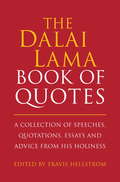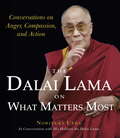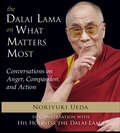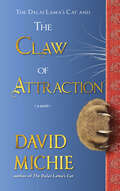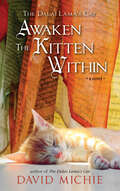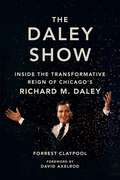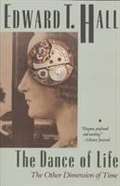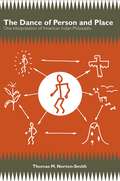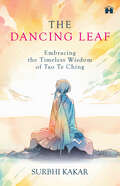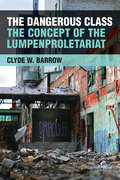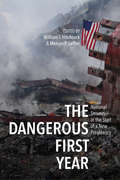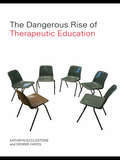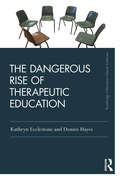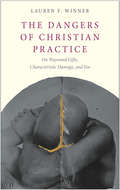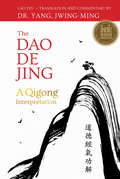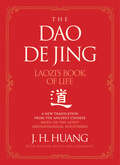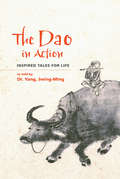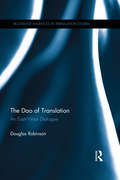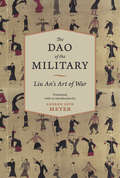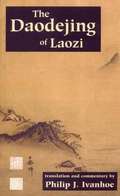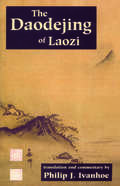- Table View
- List View
The Dalai Lama Book of Quotes: A Collection of Speeches, Quotations, Essays and Advice from His Holiness
by Travis Hellstrom"The need for love lies at the very foundation of human existence." --XIV Dalai Lama The words of the Dalai Lama resonate within each of us, empowered as they are by centuries of experience and a passionate, enduring spirit for peace on Earth. Tenzin Gyatso, the current and XIV Dalai Lama, has continued this grand legacy, traveling the world while spreading his personal doctrine of compassion and true understanding. And with each year that passes, more and more people come to know the Lama, and seek his wisdom on a breadth of topics, from world peace to a life well-lived. Presented in an elegant, attractive format, The Dalai Lama Book of Quotes collects the very best of the Lama's sage wisdom, assembled from quotes, articles, speeches, and written works directly attributed to His Holiness. Organized into universal themes that everyone can relate to, The Dalai Lama Book of Quotes touches on themes ranging from love, to spirituality, to happiness and humanity. This inspirational book makes a wonderful gift for anyone seeking greater personal well-being and a life informed by compassion and faith. Each thought from the Lama is sure to inspire and invigorate you throughout your day, as your eyes are opened to a more beautiful way of looking at the world. Simple and accessible for all ages, this inspirational title makes a great gift for anyone seeking to incorporate the wisdom of the ages and a love that transcends lifetimes into their daily life.From the Hardcover edition.
The Dalai Lama on What Matters Most
by The Dalai Lama Noriyuki UedaIn conversation with His Holiness the Dalai Lama. In April of 2006, the prominent Japanese cultural anthropologist Noriyuki Ueda sat down with the Dalai Lama for a two day conversation. This book is based on that long and lively conversation in Dharamsala. In this little book, the two men explore whether there is a place in religious practice for anger against social injustice, the role of competition in spiritual life, conditional versus unconditional love, and the soullessness of materialism.One of the real pleasures of this book is the Dalai Lama's uncharacteristic candor. For example:'I am not only a socialist but also a bit of a leftist, a Communist.''I hold the position of a high monk, a big lama. Unless I exercise self restraint, there is every possibility for me to exploit others.'He also argues that rather than suppressing anger, Buddhism embraces using anger to precipitate social change. In other words anger can be an important spiritual practice. This book offers a unique perspective on the Dalai Lama's political and spiritual views. And it guides the reader through the complex reality of what it means to practice compassion in the here and now.
The Dalai Lama on What Matters Most: Conversations on Anger, Compassion, and Action
by The Dalai Lama Noriyuki UedaThe Dalai Lama as You've Never Heard Him BeforeA few years ago, prominent cultural anthropologist Noriyuki Ueda sat down with the Dalai Lama for a lively two-day conversation. This little book is the result. In it are some surprising truths and commonsense wisdom."The attachment that seeks what is good is worthwhile. Seeking enlightenment is a kind of attachment that we should keep, as is the desire for an unbiased heart.""Anger that is motivated by compassion or a desire to correct social injustice, and does not seek to harm anyone, is a good anger worth having.""I'm not only a socialist, but also a bit of a leftist, a Communist.""The type of competition that says, 'I am the winner, and you are the loser' must be overcome. But a positive competition allows us to lift each other up so that everybody ends up on top."Open the book to any page and find great wisdom on what matters most. And what matters most is not adherence to any one doctrine or political system but living with an open mind and heart.
The Dalai Lama's Cat and the Claw of Attraction
by David MichieThe Dalai Lama regarded their flushed, animated faces, his forehead wrinkling. "The materialist approach," he nodded. "Seeking to change what you believe to be entirely outside you. It has many problems. For example, why must you constantly postpone your happiness?" India's Top Ten Social Influencers Under 30 were taken aback by this question. Staring at him, their eyes filled with consternation. Postponing happiness was something they most definitely wanted no part of."For example, if our happiness depends on having the new diamante sunglasses," he chuckled. "Or the perfect boyfriend," he beamed from the girl dressed in crimson to the one in emerald green. "Or having ten million followers," he nodded at the woman in the yellow sari. "What do we do until then? If we are constantly yearning for material things that we don't have yet, then our happiness is always around the corner. Or at the top of the next mountain. Why do you not wish to be happy here and now? Without needing anything else. Happy as I am?"In a chance encounter with India's Top Ten Social Influencers, the Dalai Lama is asked to how to use the 'law of attraction' to manifest abundance. He points out that material wellbeing was never the goal of such practices as he begins to explain their true purpose.It is a purpose that His Holiness's Cat goes on to explore with her usual warm-hearted and wonky-legged aplomb. Is the world much more a projection of our mind than we suspect? Can a few, precious insights transform our reality? In a drama of intimate revelations as well as panoramic visions, of encounters with much-loved friends along with intriguing newcomers, the Dalai Lama's Cat comes to discover that The Claw of Attraction holds the key to a more sublime transcendence than she ever believed possible. Stretch out your own talons, dear reader, and you may too!
The Dalai Lama's Cat: A Novel
by David Michie"In the months that followed I watched His Holiness working on a new book . . . I began to think that perhaps the time had come for me to turn my paws to a book of my own . . . one that tells my own tale . . . How I was rescued from a fate too grisly to contemplate, to become constant companion to a man who is not only one of the world’s greatest spiritual leaders and a Nobel Peace Prize laureate, but who is also a dab hand with the can opener."Not so much fly-on-the-wall as cat-on-the-sill, this is the warmhearted tale of a small kitten rescued from the slums of New Delhi who finds herself in a beautiful sanctuary with sweeping views of the snow-capped Himalayas. In her exotic new home, the Dalai Lama’s cat encounters Hollywood stars, Buddhist masters, Ivy-league professors, famous philanthropists, and a host of other people who come visiting His Holiness. Each encounter offers a fresh insight into finding happiness and meaning in the midst of a life of busy-ness and challenge. Drawing us into her world with her adorable but all-too-flawed personality, the Dalai Lama’s cat discovers how instead of trying to change the world, changing the way we experience the world is the key to true contentment.Featuring a delightful cast of characters, timeless Buddhist wisdom, and His Holiness’s compassion pervading every chapter, The Dalai Lama’s Cat is simply enchanting.
The Dalai Lama's Cat: Awaken the Kitten Within
by David Michie"&‘Oh! How adorable! I didn&’t know you had a cat!&’ she exclaimed. I am always surprised how many people make this observation. Why should His Holiness not have a cat?&‘ If only she could speak,&’ continued the actress. &‘I&’m sure she&’d have such wisdom to share. &’And so the seed was planted . . .I began to think that perhaps the time had come for me to write a book of my own—a book that would convey some of the wisdom I&’ve learned sitting not at the feet of the Dalai Lama but even closer, on his lap. A book that would tell my own tale . . . how I was rescued from a fate too grisly to contemplate to become the constant companion of a man who is not only one of the world&’s greatest spiritual leaders and a Nobel Peace Prize Laureate but also a dab hand with a can opener."Starving and pitiful, a mud-smeared kitten is rescued from the slums of New Delhi and transported to a life she could have never imagined. In a beautiful sanctuary overlooking the snow-capped Himalayas, she begins her new life as the Dalai Lama&’s cat. Warmhearted, irreverent, and wise, this cat of many names opens a window to the inner sanctum of life in Dharamsala.A tiny spy observing the constant flow of private meetings between His Holiness and everyone from Hollywood celebrities to philanthropists to self-help authors, the Dalai Lama&’s cat provides us with insights on how to find happiness and meaning in a busy, materialistic world. Her story will put a smile on the face of anyone who has been blessed by the kneading paws and bountiful purring of a cat.
The Dalai Lama's Little Book of Inner Peace: The Essential Life and Teachings
by Dalai LamaPowerful, profound advice on how to live a peaceful and fulfilling life amidst all the conflicts of the modern world. <P><P>In this distillation of his life and teachings, the Dalai Lama paints a compelling portrait of his early life, reflecting on the personal and political struggles that have helped to shape his understanding of our world. Offering his wisdom and experience to interpret the timeless teachings of the Buddha, The Dalai Lama's Little Book of Inner Peace is fresh and relevant to our troubled times. He explains in a simple and accessible way how each of us can influence those around us by living with integrity. And he holds out hope that, through personal transformation, we can all contribute to a better world.
The Daley Show: Inside the Transformative Reign of Chicago's Richard M. Daley
by Forrest Claypool“You have to have passion. You have to have honesty in office. You have to love the people.” Those words summed up the outlook, if not always the actions, of Chicago Mayor Richard M. Daley. Elected to govern a city roiled by racial and economic crises, Daley adroitly wielded the tools of power in the rough-and-tumble world of Chicago politics. Under his rule, Chicago rebuilt a dying downtown, becoming a cultural and tourism mecca punctuated by construction of the iconic Millenium Park. To drive growth, he engineered a massive expansion of O’Hare Airport. To correct a historical injustice, he razed the city’s notorious public housing high rises as part of a sweeping plan to transform the lives of the city’s poorest residents. Yet corruption and graft, City Hall’s role in calamities like the 1995 heat wave, and Daley’s inaction in the face of evidence of police torture, tarnished his many accomplishments. A two-time Daley chief-of-staff, Forrest Claypool draws on his long career in local government to examine the lasting successes, ongoing dramas, and disastrous failures that defined Daley’s twenty-two years in City Hall. Throughout, Claypool uses Daley’s career to illustrate how effectual political leadership relies on an adept and unapologetic use of power--and how wielding that power without challenge inevitably pulls government toward corruption. A warts-and-all account of a pivotal figure in Chicago history, The Daley Show tells the story of how Richard M. Daley became the quintessential big city mayor.
The Dance of Life: The Other Dimension of Time
by Edward T. Hall<p>In his pioneering work The Hidden Dimension, Edward T. Hall spoke of different cultures' concepts of space. Now The Dance of Life reveals the ways in which individuals in culture are tied together by invisible threads of rhythm and yet isolated from each other by hidden walls of time. Hall shows how time is an organizer of activities, a synthesizer and integrator, and a special langauge that reveals how we really feel about each other. <p>Time plays a central role in the diversity of cultures such as the American and the Japanese, which Hall shows to be mirror images of each other. He also deals with how time influences relations among Western Europeans, Latin Americans, Anglo-Americans, and Native Americans.</p>
The Dance of Person and Place: One Interpretation of American Indian Philosophy (SUNY series in Living Indigenous Philosophies)
by Thomas M. Norton-SmithEver since first contact with Europeans, American Indian stories about how the world is have been regarded as interesting objects of study, but also as childish and savage, philosophically curious and ethically monstrous. Using the writings of early ethnographers and cultural anthropologists, early narratives told or written by Indians, and scholarly work by contemporary Native writers and philosophers, Shawnee philosopher Thomas Norton-Smith develops a rational reconstruction of American Indian philosophy as a dance of person and place. He views Native philosophy through the lens of a culturally sophisticated constructivism grounded in the work of contemporary American analytic philosopher Nelson Goodman, in which stories (or "world versions") satisfying certain criteria construct actual worlds—words make worlds. Ultimately, Norton-Smith argues that the Native stories construct real worlds as robustly as their Western counterparts, and, in so doing, he helps to bridge the chasm between Western and American Indian philosophical traditions.
The Dancing Leaf: Embracing the Timeless Wisdom of Tao Te Ching
by Surbhi KakarWithin the ancient verses of the Tao Te Ching lies a timeless wisdom that has guided generations for centuries. The Dancing Leaf delves deep into the profound teachings of this revered text, providing a deeper understanding of human nature and enduring universal principles.Drawing from the rich tapestry of Lao Tzu&’s legacy, the book serves as a contemporary guide for those seeking to gain clarity on navigating the complexities of existence, cultivating inner peace, and embracing the interconnectedness of all things. Each chapter covers a facet of Tao and provides a practical and applicable roadmap for integrating these edifying insights into daily life.The author skillfully intertwines these age-old verses with her own life experiences, creating a profound narrative that breathes life into ancient philosophies. With personal anecdotes and heartfelt introspection, she becomes both a guide and companion on a transformative journey.All in all, The Dancing Leaf is not just a book; it&’s an invitation to embark on a transformative voyage of self-discovery and personal transformation.=
The Dangerous Class: The Concept of the Lumpenproletariat
by Clyde BarrowMarx and Engels’ concept of the “lumpenproletariat,” or underclass (an anglicized, politically neutral term), appears in The Communist Manifesto and other writings. It refers to “the dangerous class, the social scum, that passively rotting mass thrown off by the lowest layers of old society,” whose lowly status made its residents potential tools of the capitalists against the working class. Surprisingly, no one has made a substantial study of the lumpenproletariat in Marxist thought until now. Clyde Barrow argues that recent discussions about the downward spiral of the American white working class (“its main problem is that it is not working”) have reactivated the concept of the lumpenproletariat, despite long held belief that it is a term so ill-defined as not to be theoretical. Using techniques from etymology, lexicology, and translation, Barrow brings analytical coherence to the concept of the lumpenproletariat, revealing it to be an inherent component of Marx and Engels’ analysis of the historical origins of capitalism. However, a proletariat that is destined to decay into an underclass may pose insurmountable obstacles to a theory of revolutionary agency in post-industrial capitalism. Barrow thus updates historical discussions of the lumpenproletariat in the context of contemporary American politics and suggests that all post-industrial capitalist societies now confront the choice between communism and dystopia.
The Dangerous First Year: National Security at the Start of a New Presidency (Miller Center Studies on the Presidency)
by William I. Hitchcock Melvyn P. Leffler"You've got to give it all you can that first year.... You've got just one year when they treat you right, and before they start worrying about themselves.... So, you've got one year."--Lyndon B. Johnson, January 1965In an increasingly polarized political environment, the first year of the new president's term will be especially challenging. With a fresh mandate, however, the first year also offers opportunities that may never come again. The First Year Project is a fascinating initiative by the Miller Center of the University of Virginia that brings together top scholars on the American presidency and experienced officials to explore the first twelve months of past administrations, and draw practical lessons from that history, as we prepare to inaugurate a new president in January 2017.This project is the basis for a new series of digital shorts published as Miller Center Studies on the Presidency. Addressing the theme of national security, this debut volume examines the first-year experiences of five previous administrations, including those of John F. Kennedy, Ronald Reagan, George H. W. Bush, Bill Clinton, and George W. Bush. Presented as specially priced collections published exclusively in an ebook format, these timely examinations recognize the experiences of past presidents as an invaluable resource that can edify and instruct the incoming president. Contributors: Hal Brands, Duke University * Jeffery Engel, Southern Methodist University * Michèle Flournoy, Center for a New American Security * Melvyn P. Leffler, University of Virginia * Marc Selverstone, University of Virginia * Jeremi Suri, University of Texas at Austin * Philip Zelikow, University of VirginiaMiller Center Studies on the Presidency
The Dangerous Rise of Therapeutic Education
by Dennis Hayes Kathryn EcclestoneThe silent ascendancy of a therapeutic ethos across the education system and into the workplace demands a book that serves as a wake up call to everyone. Kathryn Ecclestone and Dennis Hayes' controversial and compelling book uses a wealth of examples across the education system, from primary schools to university, and the workplace to show how therapeutic education is turning children, young people and adults into anxious and self-preoccupied individuals rather than aspiring, optimistic and resilient learners who want to know everything about the world. The chapters address a variety of thought-provoking themes, including how therapeutic ideas from popular culture dominate social thought and social policies and offer a diminished view of human potential how schools undermine parental confidence and authority by fostering dependence and compulsory participation in therapeutic activities based on disclosing emotions to others how higher education has adopted therapeutic forms of teacher training because many academics have lost faith in the pursuit of knowledge how such developments are propelled by a deluge of political initiatives in areas such as emotional literacy, emotional well-being and the 'soft outcomes' of learning The Dangerous Rise of Therapeutic Education is eye-opening reading for every teacher, student teacher and parent who retains any belief in the power of knowledge to transform people's lives. Its insistent call for a serious public debate about the emotional state of education should also be at the forefront of the minds of every agent of change in society... from parent to policy maker.
The Dangerous Rise of Therapeutic Education
by Dennis Hayes Kathryn EcclestoneThe Dangerous Rise of Therapeutic Education confronts the silent ascendancy of a therapeutic ethos across the educational system and into the workplace. Controversial and compelling, Kathryn Ecclestone and Dennis Hayes’ classic text uses a wealth of examples across the education system, from primary schools to university and the workplace, to show how therapeutic education is turning children, young people and adults into anxious and self-preoccupied individuals rather than aspiring, optimistic and resilient learners who want to know everything about the world. Remaining extremely topical, the chapters illuminate the powerful effects of therapeutic education, including: How therapeutic learning is taking shape, now and in the future How therapeutic ideas from popular culture have come to govern social thought and policies How the fostering of dependence and compulsory participation in therapeutic activities that encourage the disclosing of emotions, can undermine parents’ and teachers’ confidence and authority How therapeutic forms of teacher training undermine faith in the pursuit of knowledge How political initiatives in emotional literacy, emotional wellbeing and ‘positive mental health’ propagate a diminished view of human potential throughout the education system and the workplace. The Dangerous Rise of Therapeutic Education is an eye-opening read for every teacher and leader across the field of education, and every parent and student, who is passionate about the power of knowledge to transform people’s lives. It is a call for a debate about the growing impact of therapeutic education and what it means for learning now and in the future.
The Dangers of Christian Practice: On Wayward Gifts, Characteristic Damage, and Sin
by Lauren F. WinnerChallenging the central place that “practices” have recently held in Christian theology, Lauren Winner explores the damages these practices have inflicted over the centuries Sometimes, beloved and treasured Christian practices go horrifyingly wrong, extending violence rather than promoting its healing. In this bracing book, Lauren Winner provocatively challenges the assumption that the church possesses a set of immaculate practices that will definitionally train Christians in virtue and that can’t be answerable to their histories. Is there, for instance, an account of prayer that has anything useful to say about a slave-owning woman’s praying for her slaves’ obedience? Is there a robustly theological account of the Eucharist that connects the Eucharist’s goods to the sacrament’s central role in medieval Christian murder of Jews? Arguing that practices are deformed in ways that are characteristic of and intrinsic to the practices themselves, Winner proposes that the register in which Christians might best think about the Eucharist, prayer, and baptism is that of “damaged gift.” Christians go on with these practices because, though blighted by sin, they remain gifts from God.
The Dao Companion to Japanese Buddhist Philosophy (Dao Companions to Chinese Philosophy #8)
by Gereon KopfThe volume introduces the central themes in and the main figures of Japanese Buddhist philosophy. It will have two sections, one that discusses general topics relevant to Japanese Buddhist philosophy and one that reads the work of the main Japanese Buddhist philosophers in the context of comparative philosophy. It combines basic information with cutting edge scholarship considering recent publications in Japanese, Chinese, English, and other European languages. As such, it will be an invaluable tool for professors teaching courses in Asian and global philosophy, undergraduate and graduate students, as well as the people generally interested in philosophy and/or Buddhism.
The Dao De Jing: A Qigong Interpretation
by Jwing-Ming Yang Lao TzuThis book examines one of the world’s most enduring and influential literary works, the Dao De Jing, through the timeless art of qigong. In his words, Lao Tzu (or Laozi), author of the Dao De Jing, embodies qigong principles, advocating the cultivation of mind and body. Only when we know qigong can we know Lao Tzu —and only when we know Lao Tzu can we know the Dao De Jing. Dr. Yang, Jwing-Ming, a renowned author, scholar, and martial artist, devoted decades to researching and writing this book. He interprets and analyzes the 81 chapters of the Dao De Jing. His commentary will bring new insight, inspiration, and depth to your understanding of Lao Tzu’s words—and to your qigong practice. “Many chapters in the Dao De Jing purely talk about qigong,” Dr. Yang writes, “especially the practices of regulating the body, breathing, mind, qi, and spirit.” Lao Tzu’s writing has been read, translated, and discussed around the globe. It deals with principles that transcend time and culture. That is why this ancient text has been reimagined countless times in books on business, relationships, and parenting—but never with a focus on the art of qigong. This makes Dao De Jing: A Qigong Interpretation unique and indispensible. This book includes • The complete Dao De Jing in English and its original Chinese text • Dr. Yang, Jwing-Ming’s commentary and analysis of each chapter • Numerous illustrations and diagrams Dao De Jing: A Qigong Interpretation is not a book of instruction. It is about the Way—the path before us, in qigong and in life, where what you achieve comes through your own understanding.
The Dao De Jing: Laozi's Book of Life: A New Translation from the Ancient Chinese
by J H HuangA groundbreaking and superlatively accurate new translation of Laozi’s The Dao De Jing, from the bestselling translator of The Art of War, promising to be the first English edition based on direct translation from the oldest known copies of the ancient Chinese text. One of the most significant and popular books in the history of human thought, and China’s earliest philosophical classic, The Dao De Jing has served for millennia as a brilliant guide to living healthily and happily, to treating the Earth with respect, and to understanding our place in the cosmos.The Dao is as vitally important to today’s world as it was during the Bronze Age, presenting us with clear and unexpectedly sane answers to some of the most pressing questions and challenges of our time. This beloved classic teaches us to become one with nature, with all people, and with the world; with the ultimate intention of illuminating the path to peace and promoting the conditions for harmony—within the self and in the greater world around us.Renowned translator J. H. Huang has spent over two decades researching the Dao, resulting in the most accurate translation to date based on the oldest known transcripts of the text. Huang’s translation is the first to incorporate four major archaeological findings, which have been preserved for millennia in ancient tombs, most of which were only discovered in the late twentieth century: the Guodian Chu slips, the Mawangdui silk texts, the Fu Yi version, and the Peking University bamboo slips. Huang argues that these key source materials “contextualize The Dao De Jing much in the same way the Dead Sea Scrolls illuminate the New Testament.” The result is a groundbreaking translation that offers readers the first opportunity in over two millennia to thoroughly comprehend all of the teachings contained in these eighty-one chapters.
The Dao in Action: Inspired Tales for Life
by Jwing-Ming YangIn this collection of fables, Dr. Yang, Jwing-Ming shares the stories that have influenced him most as a martial artist and lifelong student of the Dao. They bring the Dao to life for readers of all generations. Whoever we are, wherever we’re going, these short tales help us along the path—the Way. Some offer the traveler a moral compass. Some illustrate the dangers in human folly. Others just make us laugh. The Dao in Action will inspire young readers to refine their character. Older readers will smile and recognize moments of truth. This collection is for anyone who would like to explore the enduring lessons of martial wisdom. Fables entertain us, enlighten us, and guide us. We recognize ourselves in the characters, be they emperors, village girls, or singing frogs. They help us see our own weaknesses, strengths, and possibilities. Their lessons transcend time and culture, touching what it really means to be alive. For example, in life we must ask questions, learn from others, and find our place in the world. On the other hand, there is real danger in worrying too much about what others think. This lesson is clear—and very humorous—in the story “A Donkey, a Father, and a Son.” We must help others and give of ourselves, but we must also guard against those who would take advantage of us, as in “The Wolf, the Scholar, and the Old Man.” We should save our money and plan for the future, but we must also resist greed, lest we end up “A Rich Man in Jail.” These lean, concise fables illustrate that balance, the duality of yin and yang, always shifting, always in correction. They help us laugh at our human predicaments—and maybe even at ourselves.
The Dao of Translation: An East-West Dialogue (Routledge Advances in Translation and Interpreting Studies)
by Douglas RobinsonThe Dao of Translation sets up an East-West dialogue on the nature of language and translation, and specifically on the "unknown forces" that shape the act of translation. To that end it mobilizes two radically different readings of the Daodejing (formerly romanized as the Tao Te Ching): the traditional "mystical" reading according to which the Dao is a mysterious force that cannot be known, and a more recent reading put forward by Sinologists Roger T. Ames and David L. Hall, to the effect that the Dao is simply the way things happen. Key to Ames and Hall’s reading is that what makes the Dao seem both powerful and mysterious is that it channels habit into action—or what the author calls social ecologies, or icoses. The author puts Daoism (and ancient Confucianism) into dialogue with nineteenth-century Western theorists of the sign, Charles Sanders Peirce and Ferdinand de Saussure (and their followers), in order to develop an "icotic" understanding of the tensions between habit and surprise in the activity of translating. The Dao of Translation will interest linguists and translation scholars. This book will also engage researchers of ancient Chinese philosophy and provide Western scholars with a thought-provoking cross-examination of Eastern and Western perspectives.
The Dao of the Military: Liu An's Art of War (Translations from the Asian Classics)
by Andrew Seth MeyerMaster Sun's The Art of War is by no means the only ancient Chinese treatise on military affairs. One chapter in the Huainanzi, an important compendium of philosophy and political theory written in the second century BCE, synthesizes the entire corpus of military literature inherited from the Chinese classical era. Drawing on all major, existing military writings, as well as other lost sources, it assesses tactics and strategy, logistics, organization, and political economy, as well as cosmology and the fundamental morality of warfare.This powerful work set out to become the last word on military matters, subsuming and replacing all preceding literature. Written under the sponsorship of Liu An, king of Huainan, the Huainanzi's "military methods" emphasize the preservation of peace as the ultimate value to be served by the military, insisting that the army can be effectively and rightly used only when defending the sacred hereditary position of the emperor and his vassals. This position stands in stark contrast to that of The Art of War, which prioritizes the enrichment and empowerment of the state. Liu An's philosophy also argues that military success depends on the personal cultivation of the commander and that deception is not enough to secure victory. Only a commander with the exceptional qualities of insight and cognition, developed through a program of meditative practice and yogic refinement, can effectively control and interpret the strategic situation. Andrew Seth Meyer offers both a full translation of this text and an extensive analysis of its historical context. His thorough treatment relates Liu An's teachings to issues in Chinese philosophy, culture, religion, and history, helping to interpret their uncommon message.
The Daodejing of Laozi
by Laozi Philip J. IvanhoeTaoist text, with commentary and appendices, including one of various translations of Chapter 1.
The Daodejing of Laozi
by Laozi Philip J. IvanhoePhilip J. Ivanhoe's richly annotated translation of this classic work is accompanied by his engaging interpretation and commentary, a lucid introduction, and a Language Appendix that compares eight classic translations of the opening passage of the work and invites the reader to consider the principles upon which each was rendered.
The Dappled World
by Nancy CartwrightIn this book Nancy Cartwright argues against a vision of a uniform world completely ordered under a single elegant theory, and proposes instead a patchwork of laws of nature. Combining classic and newly written essays, The Dappled World offers important methodological lessons for both the natural and the social sciences, and will interest anyone who wants to understand how modern science works.
